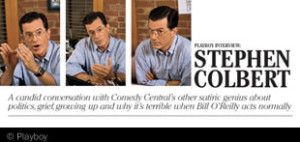I am featuring a 5-minute YouTube video with Tara Branch, the well-known therapist and Buddhist practitioner. In this particular video, Tara speaks about how to be present for our loved-ones dying.
Sibling Loss: My Cherished Sister Donna

Guest contributor: Lyn Prashant, PhD FT
My beloved sister Donna was a gentle, loving, caring soul. She was my trusted confidant, my witness, my cheerleader, and my best friend. She died September 6, 2002, at age 49.
Donna was born three-and-a-half years after me, and from that time on she was there for me, and I for her. We were giddy and vulnerable with each other. I remember walking down the street with her, holding her hand, thinking about how lucky I was to have her as my very own sister. Our commitment and sense of knowing one another was astounding. A glance into her eyes affirmed: “She was both my sister and my best friend.”
When Donna was 36, she received the diagnosis of breast cancer. I had already lost my young husband to cancer, so the words sent shock waves through me again. Since the death of my husband, Mark, in 1984, I had embarked on a path of healing that involved “making peace with my own grief.” Stephen Levine, author of Who Dies? states, “we can be available to others in their grief to the extent that we know our own.” This was certainly a stunning way for me to assess how well I had transformed my grief over the loss of my husband.
“Be Responsible TO me… NOT for me.”
I remember feelings of disbelief at the sound and meaning of the doctor’s words, the physical sensation of numbness and my inability to think clearly. Later, when we went to have lunch, Donna looked into my eyes and asked: “Lyn, as my older sister, can you be my advocate? Please understand, I do not need you to be in charge of me. I need you to hear me and give me feedback.”
She then added, “What I really need is for you to be responsible TO me…NOT for me.”
Grief Demands an Answer

Recently The Atlantic magazine published an article “In Grief, Try Personal Ritual” about the positive influence of private ritual for people dealing with the death of a loved one. The article’s author quotes Joan Didion from her book The Year of Magical Thinking, which is about how she survived her husband’s unexpected death from a massive heart attack. No mention is made, however, of the fact that Didion’s only child died a mere 20 months later.
The Deeper Details of a Deceased Relationship
No opinion, no theory, just details
I recently did a Motion Theater Improv workshop in Big Sur with Nina Wise. It was a fascinating week. She is a fascinating woman. There were days of nothing but improvised movement until she invited us to add words on one condition: no opinion or theory, just details.
Forgetting Your Loved One
 Resolving your grief does not mean forgetting your loved one
Resolving your grief does not mean forgetting your loved one
Resolving your grief does not mean that you will not feel deeply sad about your loss in the future. To the contrary, remembering your loved one and being able to connect to your sense of loss in the future is normal, healthy and desirable.
Satirist and TV host Stephen Colbert addressed this continuing presence of loss in a recent magazine interview*. Colbert was 10 when his father and two young brothers were killed in an airplane crash while on their way to enrolling the two young men in private school. When the interviewer asked Colbert if his grief had dissipated in the 40 years since the accident, he said it “was as keen but not as present.”

